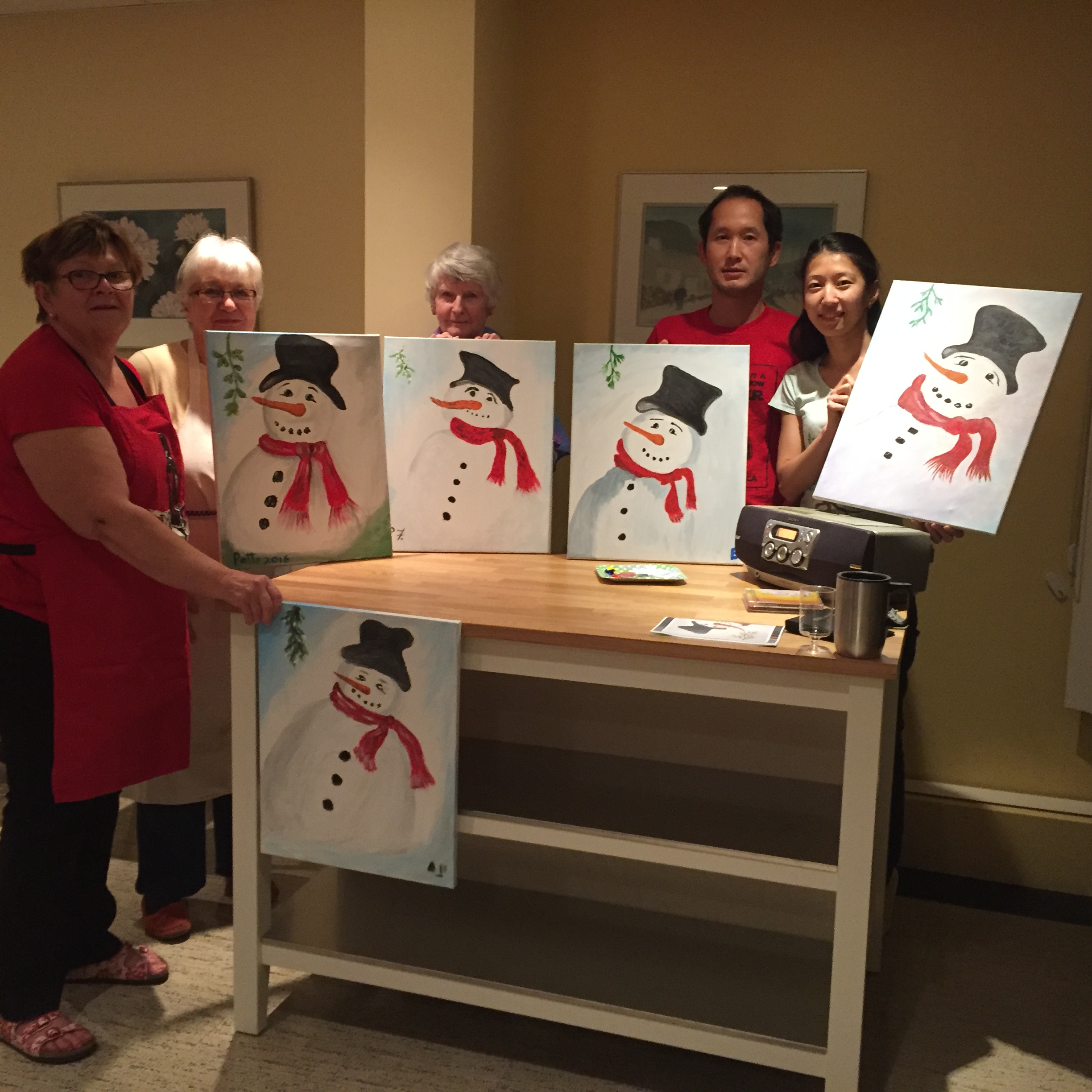Near the top of each website page there is a Search box. You may use it to find past articles from this website’s archives. Want to see what was posted about “dogs”, “air conditioners”, “committees” or anything else? Just type in the text, without quotes, and hit your Enter key.
Category Archives: Uncategorized
Did you know? Officers
Officers, such as President, Treasurer, Secretary are described in Article 36 of the Condo Act and Article VII of our Bylaw 3. Positions can be combined. For example, we could have a Secretary-Treasurer or a Vice-President/Secretary.
Officers are not elected directly by owners. Instead, owners elect directors who then choose which of them will occupy the officer positions.
The Act does not specify the officers’ duties. Rather, it requires them to “. . . act honestly and in good faith; and exercise the care, diligence and skill that a reasonably prudent person would exercise in comparable circumstances”.
For a summary of officers’ duties we turn to our Bylaw 3:
| Officer | Duties |
|---|---|
| President | Preside at all meetings; generally supervise condo business |
| Vice-President | Any duties the board prescribes |
| Secretary | Give out notices; keep a record of minutes; act as custodian of records |
| Treasurer | Keep account books; control the deposit of money; safeguard funds |
Did you know? Garbage and recycling
We are set up for waste of different kinds:
- Refundable liquor, beer and wine bottles, cans and bags should be taken to the recycle room on P2.
- Other bottles and cans go to the blue bins on P1 and P2. They are picked up by the City on Wednesdays.
- Paper and cardboard go to the big yellow bins on P1 and P2. They are picked up by the City on Wednesdays.
- Kitchen waste goes to the green bins the Supers keep in the garbage room. You need your fob to open its door. Kitchen waste can be wrapped in newspaper but not in plastic bags. The green bins are picked up by the City on Wednesdays.
- Please do not put plastic bags or styrofoam in any of the blue, yellow or green bins. If any plastic bags are present it could result in the entire bin contents thrown into the regular garbage and trucked to the dump.
See also our waste disposal page that includes a link to the City’s website.
Did you know? Former FP resident wins Grey Cup
Did you know? Meetings of owners
While there’s nothing in the Act to prevent owners from meeting informally, these notes apply to meetings where owners approve motions by voting. Other than routine procedure, votes can only be taken on matters disclosed in advance. You will find detail in Articles 45-47 of the Condo Act.
Annual General Meeting
The Board must schedule an AGM within 6 months after the end of the fiscal year. In our case, that means before the end of June. In addition to items on the AGM’s published agenda, any owner may raise any matter relevant to the corporation’s business.
Other meetings called by the Board
The Board may call other meetings on 15 days notice, describing the business to be discussed.
Requisitioned meetings
Owners may insist on a meeting by following these procedures:
- provide the Board with written notice
- state the business to be discussed
- signed by at least 15% of owners
If the Board receives a proper requisition it must call a meeting within 35 days but it’s preferable that the Board arrange meetings voluntarily. I have found the Board tends to get defensive when faced with a requisition.
Special meetings
Meetings for election or removal of Directors or approval of rules or bylaws will be covered in future DYK.
Paint in the Perrier
Did you know? Role of the Property Manager at the AGM
Our Property Manager (PM) has assumed various responsibilities at our Annual General Meetings:
- Sending notice to owners of the date and location of the meeting
- Including in the notice an agenda and the auditor’s report
- Attending the AGM
- Providing information to the meeting when requested
- Verifying owners in attendance
- Validating proxies
- Stating legal opinions
- Supervising the election of Directors
- Participating in the Director election vote counting
I have observed both the current and the previous PM in relation to the above list. It’s important to examine these roles to distinguish which are properly found within the PM’s contract. In my opinion, the PM is legitimately responsible for the first 4 items in the list. The PM should work with the Secretary on items 5 and 6 and might assist the Board, if asked, with item 7.
In my opinion, the PM should not be involved with the election, items 8 and 9. The PM’s company has a contractural relationship with our corporation, CCC #82. The Board of Directors represents the corporation so the Directors could be seen as the PM’s employer. Therefore, the PM’s involvement in election of Directors is a conflict of interest.
I don’t fault the current or previous PM for what has taken place. Boards have either encouraged the PM to expand her role or have passively allowed its expansion. Owners should prepare for the 2017 AGM with this in mind. One way to help such preparation would be a committee consisting of Directors and owners not planning to run for election. The committee could decide on best practices for the AGM.
Did you know? Reserve fund and reserve fund study
Condo corporations maintain an operating fund and a reserve fund. The operating fund is used for day to day expenses and maintenance. The reserve fund is “used solely for the purpose of major repair and replacement of the common elements and assets of the corporation”, according to the Condo Act, Article 93. You’ll note an update to the Act would also include “repair of a unit” in the permitted uses of the reserve fund. Each month a portion of income from condo fees is added to the reserve fund.
A reserve fund study (RFS) describes the projects needing reserve fund money, predicts when they must be done and tells us how much we should expect them to cost. Our most recent RFS was completed by an engineering firm in the fall of 2015 and applies to the years 2015-2045. In my opinion, any study that attempts to predict that far into the future must be viewed with caution. What about large increases in the price of materials and labour? What about projects no one can anticipate? However, the RFS at least alerts us to things that will definitely need attention
Examples of RFS projects:
- Fire protection systems
- Fire alarm system
- Emergency generator with fire pump
- Garage roof membrane replacement
- Balcony concrete waterproofing
- Exterior painting and caulking
- Lobby refinishing
In the recent past we paid for the window and balcony door replacement from the reserve fund.
If you would like a copy of our RFS please contact me; be sure to identify yourself as a Frobisher Place owner with your unit number.
Did you know? What happens at Board meetings?
This is based on my experience at Frobisher Place.
Board meetings were normally held on the third Monday of each month. On the preceding Friday the Property Manager (PM) emailed Directors with financial statements for the previous month and her report. The report included an agenda. There were some attempts at different times to establish an independent agenda but most Directors seemed content to accept the PM’s.
The first order of business was approval of the minutes of the previous Board meeting. In recent months there was also approval of a redacted version of the minutes. The redacted version omits names of any individual owners. If owners request copies of Board minutes they would receive the approved redacted version.
Next business was the financial statements. They included reports on the operating and reserve funds, revenue and expenditures by category, specific payments and any units in arrears for condo fees.
The remainder of the meeting involved other business, mostly items brought forward by the PM. One disagreement I’ve had with other Directors is the decision to discuss issues only at Board meetings rather than cover matters in part via email ahead of meetings, understanding that any approval must wait until meeting time. The result has often been unproductive and time consuming discussion, especially when some of the items have only become known to most Directors through the PM’s report we just received.
Board meetings have usually lasted close to 3 hours. I believe that’s too long. Items discussed near the end of that time may not get the careful attention they deserve.
A proposed revision to our operating bylaw would permit Board meetings to be held by teleconference. Although this revision has not yet been approved by owners, the Board has nonetheless attempted to conduct some meetings with one or more absent Directors connected remotely. I’m in favour of such innovation but the technology has tended to be unreliable due to poor audio and connections interrupted or broken.
Missed earlier installments of this series? Just enter Did you know? in the search box and hit Enter.
Did you know? How is a Board vacancy filled?
If a Director leaves, the Board may fill the vacancy by appointment, provided that a quorum of at least four Directors remains. Note, the Board may fill the vacancy but is not required to do so. In recent years the Board has advertised to give those interested an opportunity to apply but, again, that’s not required. The Board could simply appoint whomever it chooses or leave the vacancy unfilled.
If a new Director is appointed he or she serves the remainder of the term of the Director who left. For example, if the Board decides to fill my position, that newly appointed Director will serve until the 2017 AGM. To continue on the Board he or she would have to run for election.
For more info, see the Condo Act, Article 34.
There is more concerning removal and replacement of Directors that will be covered in a later Did you know.


